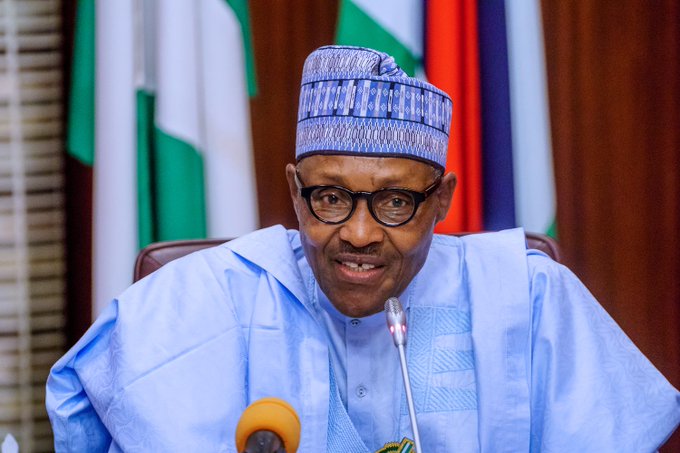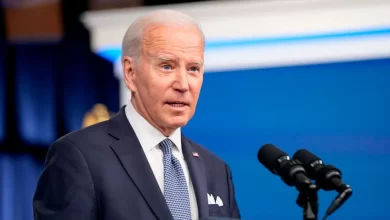Senate Lauds Buhari On Assent To PIB, PDP Kicks

President Muhammadu Buhari
President Muhammadu Buhari has signed the Petroleum Industry Bill 2021 into law.
Working from home in five days quarantine as required by the Presidential Steering Committee on COVID-19 after returning from London Friday, August 13, the president assented to the Bill Monday, August 16 in his determination to fulfil his constitutional duty.
The ceremonial part of the new legislation would be done Wednesday after the days of mandatory isolation would have been fulfilled.
The PIB Act provides legal, governance, regulatory and fiscal framework for the Nigerian petroleum industry, the development of host communities, and related matters.
The Senate had passed the Bill July 15, 2021, while the House of Representatives did same July 16, thus ending a long wait since early 2000s, and notching another high for the Buhari administration.
Senate lauds president
Meanwhile, the Senate has commended President Buhari for assenting to the bill.
In a statement by its spokesman, Senator Surajudeen Ajibola Basiru, the upper chamber described the presidential assent “as a major victory that has the potential of bailing Nigeria out of its economic predicament and an act that will enable the country to make the most of economic gains of the oil industry for the benefit of Nigerians.”
Basiru said with the passage of the bill by both chambers of the National Assembly for third reading last month and signing it into law by the president, the current crop of lawmakers had broken the jinx.
Efforts at reaching this stage have been a protracted affair as the Bill, first initiated in 2003 had been subjected to a ping pong affair between the previous Legislatures and the Executive.
“The 9th National Assembly finally broke the jinx when it recently passed the Bill after working dispassionately by putting the interest of the Nation first, over petty squabbles and other self-interests, thereby laying finally to rest previous failed attempts,” he said.
The lawmaker further attributed the success of the assent to the Bill which has now become an Act to the cooperative efforts of all participating sectors in the process and also the non-confrontational policy of the present National Assembly.
On the benefits of the law, Basiru said, “it will juice up the National Economy by liberalising the Petroleum Sector and that it will pave way for investors, both local and international to invest in the oil sector with the government on a competitive basis.”
President Buhari had on September 2, 2020 forwarded a draft of the bill to both chambers of the National Assembly.
It will boost the economy
Meanwhile, a Capital Market Professor, Uche Uwaleke has said the presidential assent to bill would open up the sector for more investments and boost economic growth.
He said Act would not only translate to the establishment of more refineries but also end continuous importation of fuel.
“The Bill makes provision for speedy granting of licenses to investors, especially in the downstream sector. This is likely to translate to the establishment of more refineries in Nigeria which will go a long way to meet local consumption with prospects of ending fuel importation and the loss of forex associated with it.
“This could strengthen the value of the naira in the long run as well as create job opportunities in the petroleum value chain.
“The Bill also provided for the application of cost-reflective tariffs by operators and the commercialisation of NNPC Limited. One implication of this is that fuel subsidy will completely be removed,” the capital market expert said.
He, however, noted some ‘grey areas’ that needed to be addressed.
“For instance, the PIB made attempt to curb pipelines vandalism and restiveness in the Niger Delta region through various provisions that entitle the Host Communities to a percentage of oil revenue. Unfortunately, this area has not been properly tidied up as the percentage of oil revenue initially proposed for Host Communities was reduced.
“The PIB did not also make provision for eventual partial privatisation of NNPC Limited which guarantees a more efficiently run company,” the former Imo state finance commissioner added.
On his part, political economist and development researcher, Mr Adefolarin A. Olamilekan, told one of our correspondents that “the signing of the PIB is a paradigm shift in national priorities that will emphasise transparency, prompt management and engagement in the oil and gas sector in Nigeria.”
Olamilekan, commended the 9th Assembly and the Buhari- led administration for the drive to deregulate the oil and gas sector.
“It is our hope that things would be done differently and the economy is prosperous. PIB, perhaps, provides opportunity for the economy to perform well coming from oil and gas sector that is to primarily drive competitiveness among all stakeholders.
“Again, it is our belief that PIB would reassure and help build the confidence of stakeholders, investors and better host communities -oil companies’ relations. Besides, we hope it will help eliminate all forms of corruption in the oil and gas sector translating into positive macro and micro economics goodies for all Nigerians,” he said.
PDP kicks
But the opposition Peoples Democratic Party (PDP) has faulted the presidential assent to the bill for allegedly ignoring the outcry by Nigerians across board.
In a statement Monday by its National Publicity Secretary Kola Ologbondiyan, the PDP said: “The signing of the law, despite widespread public rejection, amounts to endorsement of imposition and further confirms that President Buhari and his All Progressives Congress (APC) have no iota of respect for the people as well as the tenets of democracy as a system of government.
“By his action, President Buhari has only authenticated that he is not a listening leader and that the APC and its leaders are only out to trample on the will of Nigerians for their selfish interests, the party added.
“In putting his hands to endorse the obnoxious bill, even with its distasteful, paltry and provocative 3% revenue to oil producing communities, President Buhari and the APC have again displayed disdain and insensitivity to the sufferings of the people of the Niger Delta, “it said.
The statement further said: “The PDP holds that such is the height of contempt to oil producing communities, particularly in the face of the challenges which they face as a result of oil exploration.
“Noting that Mr. President could have returned the bill to the National Assembly with a request that it is made to address the demands of the oil producing communities, our party fears that the new law cannot guarantee the desired stability and development in the oil and gas sector as well as respite in the Niger Delta region.
“If anything, the Act as signed by President Buhari is a dangerous recipe for avoidable crisis in the sector. The PDP calls on President Buhari to salvage the situation by immediately forwarding an amendment bill to the National Assembly to reflect the true wishes and aspirations of every segment of our nation.
“While calling for calm across the country, particularly the South-South geo-political zone, the PDP also charges lawmakers elected on its platform to be at alert even as preparation must be commenced for an urgent amendment to this law,” the party said.
IBB @80: Somepeople Will Cut My Neck For Supporting Resource Control
Former Military President General Ibrahim Badamasi Babangida has thrown his weight behind resource control, saying it is just fair that people who produce resources should be allowed to benefit.
He also said with that arrangement, the federal government would even benefit more.
Babangida spoke to Blueprint Sunday ahead of his 80th birthday today (Tuesday) at his Hilltop Residence in Minna, the state capital.
The former Nigerian leader also expressed the belief that if the National Guard he established but later disbanded, was allowed to subsist; the nation may not have faced its current security challenges.
Reputed for putting together the best of Nigerian brains during his regime, Babangida said the nation’s human resource base was far from being maximally utilised by successive administrations in the country.
He said there is too much of ‘politics’ at the expense of merit, thus denying the nation the quality service from its best hands.
Culled from: blueprint.ng





